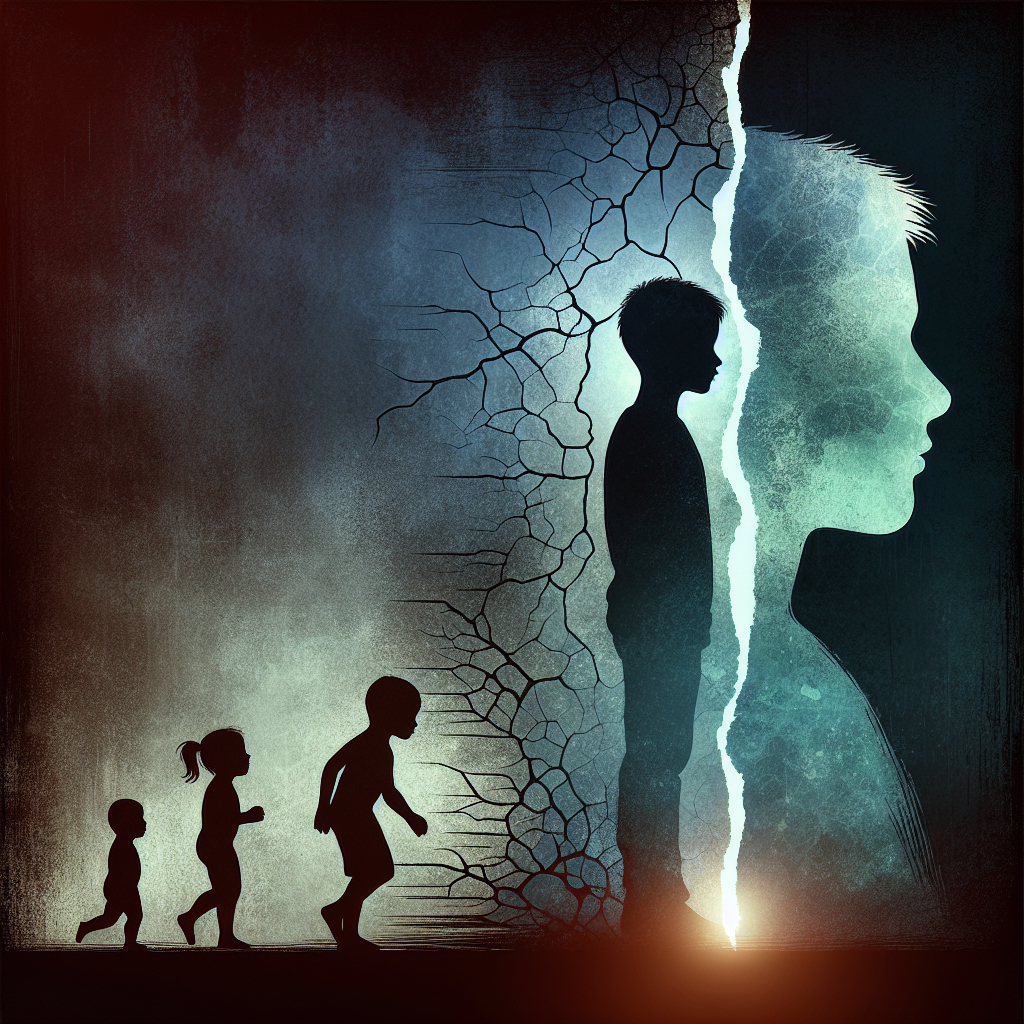Childhood trauma is a significant and often overlooked factor in shaping adult Psychology and behavior. When a child experiences traumatic events such as abuse, neglect, or violence, it can have profound and lasting effects on their mental health and well-being. These experiences can shape the way they view themselves and the world, influencing their relationships, decision-making, and overall mental health as they grow into adulthood.
Understanding the impact of childhood trauma on adult psychology and behavior is crucial in order to provide appropriate support and resources for those who have experienced such adversity. By delving into the complexities of this issue, we can gain insight into how trauma shapes our perceptions, beliefs, and behaviors, and ultimately work towards healing and recovery.
Effects of Childhood Trauma on Adult Psychology and Behavior
Childhood trauma can have a wide range of effects on adult psychology and behavior. Some of the most common ways in which trauma manifests in adulthood include:
1. Development of mental health disorders: Individuals who have experienced childhood trauma are at a higher risk of developing mental health disorders such as depression, anxiety, post-traumatic stress disorder (PTSD), and borderline personality disorder. These disorders can impact their ability to function in daily life, maintain relationships, and cope with stress.
2. Attachment issues: Trauma can greatly impact a person’s ability to form healthy attachments with others. This can manifest in various ways, such as difficulty trusting others, fear of intimacy, or a tendency to push people away. These attachment issues can have a significant impact on their relationships and overall well-being.
3. Self-esteem and self-worth: Childhood trauma can deeply affect a person’s sense of self-esteem and self-worth. Individuals who have experienced trauma may struggle with feelings of shame, guilt, and worthlessness, leading to low self-esteem and a lack of self-confidence. This can impact their ability to assert themselves, set boundaries, and advocate for their needs.
4. Emotional regulation: Trauma can also affect a person’s ability to regulate their emotions. Individuals who have experienced childhood trauma may struggle with intense emotions such as anger, fear, or sadness, and may have difficulty managing these emotions in a healthy way. This can lead to outbursts, mood swings, and other behaviors that can strain relationships and impact their mental health.
5. Coping mechanisms: In response to childhood trauma, individuals may develop maladaptive coping mechanisms such as substance abuse, self-harm, or avoidance behaviors. These coping mechanisms may provide temporary relief from distressing emotions, but ultimately contribute to further mental health issues and difficulties in functioning.
FAQs
Q: How common is childhood trauma?
A: Childhood trauma is more common than many people realize. Studies have shown that a significant percentage of children experience some form of trauma, such as abuse, neglect, or witnessing violence, during their upbringing. It is crucial to recognize the prevalence of childhood trauma in order to address its lasting impact on mental health and well-being.
Q: Can childhood trauma be overcome?
A: While childhood trauma can have lasting effects on adult psychology and behavior, it is possible to overcome these challenges with the right support and resources. Therapy, support groups, and other forms of treatment can help individuals process their trauma, develop coping skills, and work towards healing and recovery.
Q: How can I support someone who has experienced childhood trauma?
A: If you know someone who has experienced childhood trauma, it is important to offer them compassion, understanding, and support. Encourage them to seek professional help, such as therapy or counseling, and be a listening ear for them to share their experiences and feelings. It is also important to respect their boundaries and allow them to set the pace for their healing journey.
Q: What are some signs that someone may be struggling with the effects of childhood trauma?
A: Some common signs that someone may be struggling with the effects of childhood trauma include mood swings, changes in behavior, difficulty trusting others, self-destructive behaviors, and avoidance of certain situations or people. If you notice these signs in someone you care about, it may be helpful to gently encourage them to seek professional help.
In conclusion, childhood trauma can have a profound impact on adult psychology and behavior. By understanding the ways in which trauma shapes our perceptions, beliefs, and behaviors, we can provide meaningful support and resources for those who have experienced adversity. Through awareness, empathy, and education, we can work towards healing and recovery for individuals who have experienced childhood trauma.




Leave A Comment